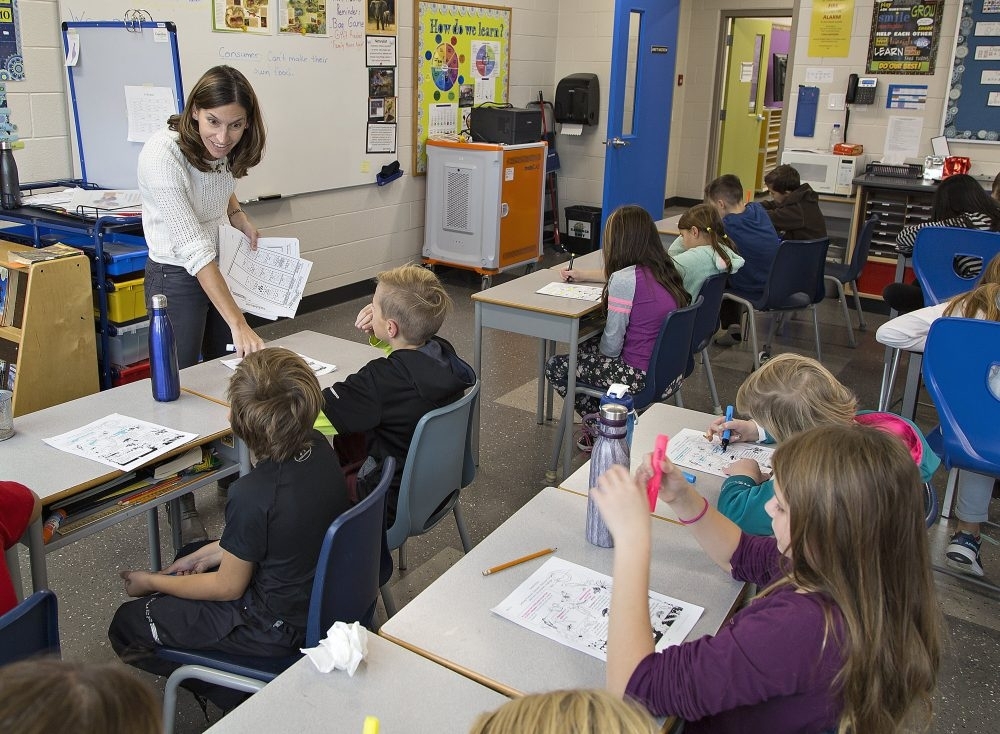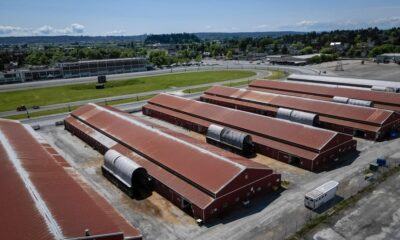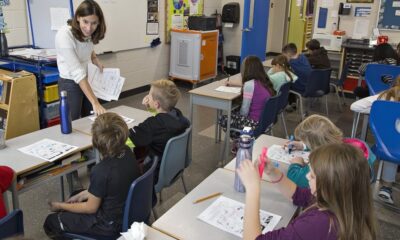Education
Parents Demand Inclusion in Curriculum Decisions Amid Growing Tensions

The back-to-school season in Winnipeg has shifted from a time of excitement and new beginnings to one marked by frustration and conflict for many parents. Families are increasingly feeling sidelined in decisions about their children’s education, particularly regarding the curriculum. Reports indicate that public schools, which are designed to serve their communities, are leaving parents feeling like outsiders.
Contentious topics, including Indigenous history, gender identity, and sexual education, have sparked heated debates. Yet, parents often find themselves excluded from these discussions, with school boards and provincial education departments making decisions behind closed doors. Changes are communicated to families only after they have been finalized, leaving many parents dissatisfied. According to a survey conducted by the Fraser Institute in 2023, 70 percent of Canadian parents expressed a desire for more involvement in educational decisions, but only 30 percent felt adequately included.
Curriculum Changes Spark Concerns
One of the most contentious issues involves the teaching of Canadian history. Current textbooks and lesson plans are being revised to emphasize historical injustices, such as residential schools and systemic discrimination. While these topics are undoubtedly important, parents worry that a lack of balance might lead to a skewed understanding of Canada. They argue that history education should encompass various perspectives and encourage critical thinking rather than promote a singular ideological viewpoint.
The impact of parental exclusion is evident. In Manitoba, enrollment in private schools rose by 12 percent between 2018 and 2023, while homeschooling increased nearly 20 percent. Many families are opting to withdraw their children from public schools, citing a lack of consultation and concerns over what they perceive as an ideologically driven curriculum.
This situation is not merely about political beliefs; it revolves around trust, transparency, and parental rights. When families feel ignored, the quality of public education is compromised.
The Shift from Community Engagement to Isolation
In the past, curriculum updates in the 1980s and 1990s involved comprehensive community engagement. Town halls, public consultations, and review periods allowed parents to ask questions, provide feedback, and influence educational materials. Schools were accountable to the communities they served, fostering an environment of trust and collaboration.
Today, however, many parents feel decisions are made without their input, leading to frustration and disconnection. Classrooms are filled with tension as teachers navigate politically charged debates without clear support. Parent involvement should not be construed as control; rather, it should be viewed as a partnership. Parents possess unique insights that can enhance learning outcomes, and fostering open dialogue is essential.
Several states in the United States have effectively implemented parental review panels, demonstrating that family engagement can coexist with academic rigor. The necessity of including parents in educational discussions cannot be overstated.
The stakes are high. Public education is intended to be a collective effort, and when parents are marginalized, trust deteriorates, enrollment declines, and community cohesion suffers. Schools in Winnipeg face the challenge of balancing transparency, diversity, and academic integrity, but they cannot succeed in isolation.
As the new school year begins this September, parents in Winnipeg and across Manitoba must advocate for their voices to be heard. The rewriting of history, the debate over values, and the future direction of education are at a critical juncture. Public schools will only thrive when families are actively involved, students are adequately supported, and decisions are made transparently. Curriculum debates may be inevitable, but parental exclusion is not. The future of public education hinges on collaboration and inclusion.
-

 Science1 week ago
Science1 week agoMicrosoft Confirms U.S. Law Overrules Canadian Data Sovereignty
-

 Technology1 week ago
Technology1 week agoGoogle Pixel 10 Pro Fold Specs Unveiled Ahead of Launch
-

 Technology1 week ago
Technology1 week agoWorld of Warcraft Players Buzz Over 19-Quest Bee Challenge
-

 Health6 days ago
Health6 days agoRideau LRT Station Closed Following Fatal Cardiac Incident
-

 Science5 days ago
Science5 days agoChina’s Wukong Spacesuit Sets New Standard for AI in Space
-

 Science1 week ago
Science1 week agoXi Labs Innovates with New AI Operating System Set for 2025 Launch
-

 Lifestyle6 days ago
Lifestyle6 days agoVancouver’s Mini Mini Market Showcases Young Creatives
-

 Science1 week ago
Science1 week agoInfrastructure Overhaul Drives AI Integration at JPMorgan Chase
-

 Technology1 week ago
Technology1 week agoHumanoid Robots Compete in Hilarious Debut Games in Beijing
-

 Top Stories1 week ago
Top Stories1 week agoSurrey Ends Horse Racing at Fraser Downs for Major Redevelopment
-

 Technology1 week ago
Technology1 week agoNew IDR01 Smart Ring Offers Advanced Sports Tracking for $169
-

 Business6 days ago
Business6 days agoCanadian Stock Index Rises Slightly Amid Mixed U.S. Markets
-

 Health6 days ago
Health6 days agoB.C. Review Urges Changes in Rare-Disease Drug Funding System
-

 Technology5 days ago
Technology5 days agoDragon Ball: Sparking! Zero Launching on Switch and Switch 2 This November
-

 Technology1 week ago
Technology1 week agoFuture Entertainment Launches DDoD with Gameplay Trailer Showcase
-

 Science1 week ago
Science1 week agoNew Precision Approach to Treating Depression Tailors Care to Patients
-

 Technology1 week ago
Technology1 week agoGlobal Launch of Ragnarok M: Classic Set for September 3, 2025
-

 Education5 days ago
Education5 days agoParents Demand a Voice in Winnipeg’s Curriculum Changes
-

 Technology1 week ago
Technology1 week agoInnovative 140W GaN Travel Adapter Combines Power and Convenience
-

 Business1 week ago
Business1 week agoNew Estimates Reveal ChatGPT-5 Energy Use Could Soar
-

 Health5 days ago
Health5 days agoRideau LRT Station Closed Following Fatal Cardiac Arrest Incident
-

 Business5 days ago
Business5 days agoAir Canada and Flight Attendants Resume Negotiations Amid Ongoing Strike
-

 Health1 week ago
Health1 week agoGiant Boba and Unique Treats Take Center Stage at Ottawa’s Newest Bubble Tea Shop
-

 Business1 week ago
Business1 week agoSimons Plans Toronto Expansion as Retail Sector Shows Resilience










